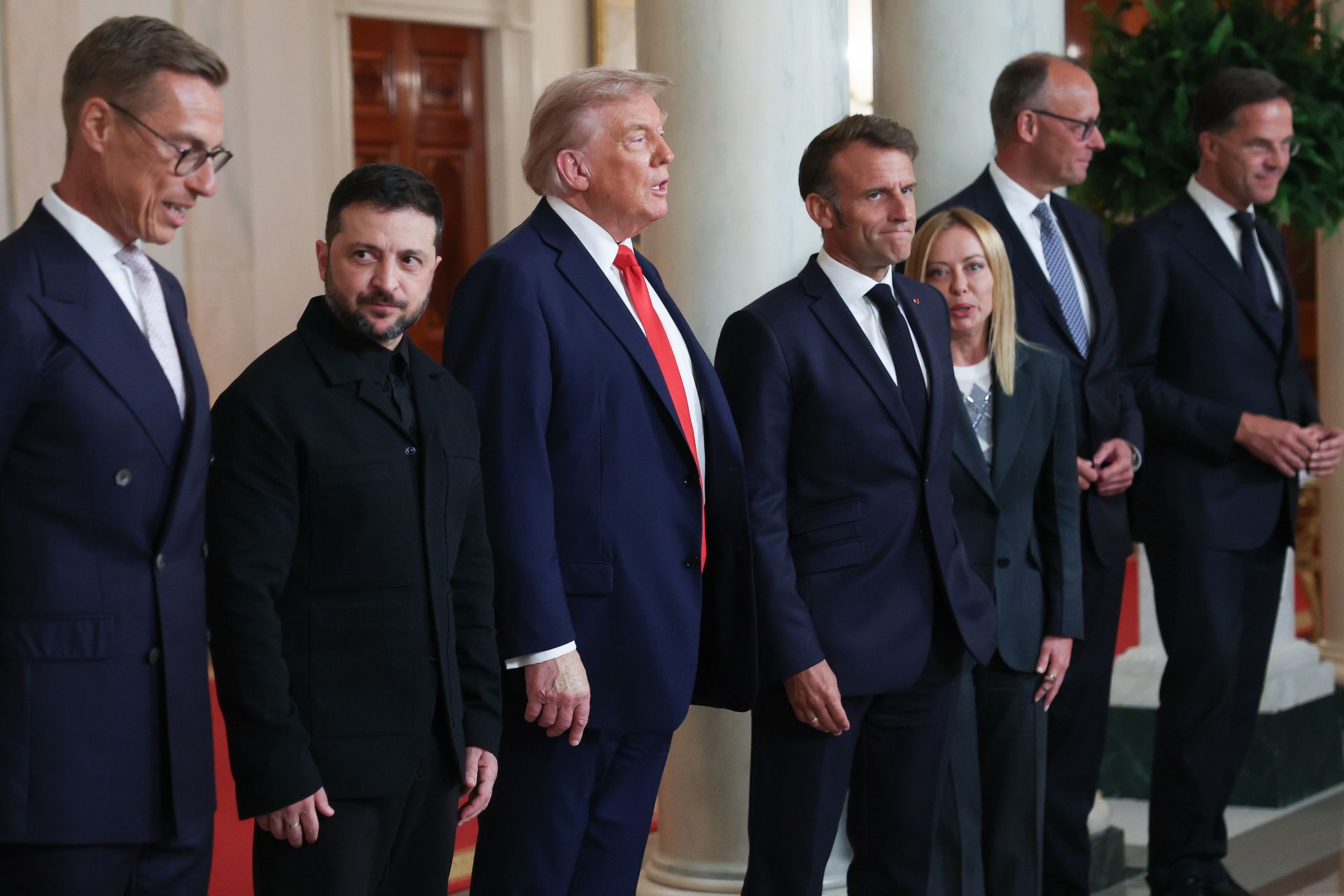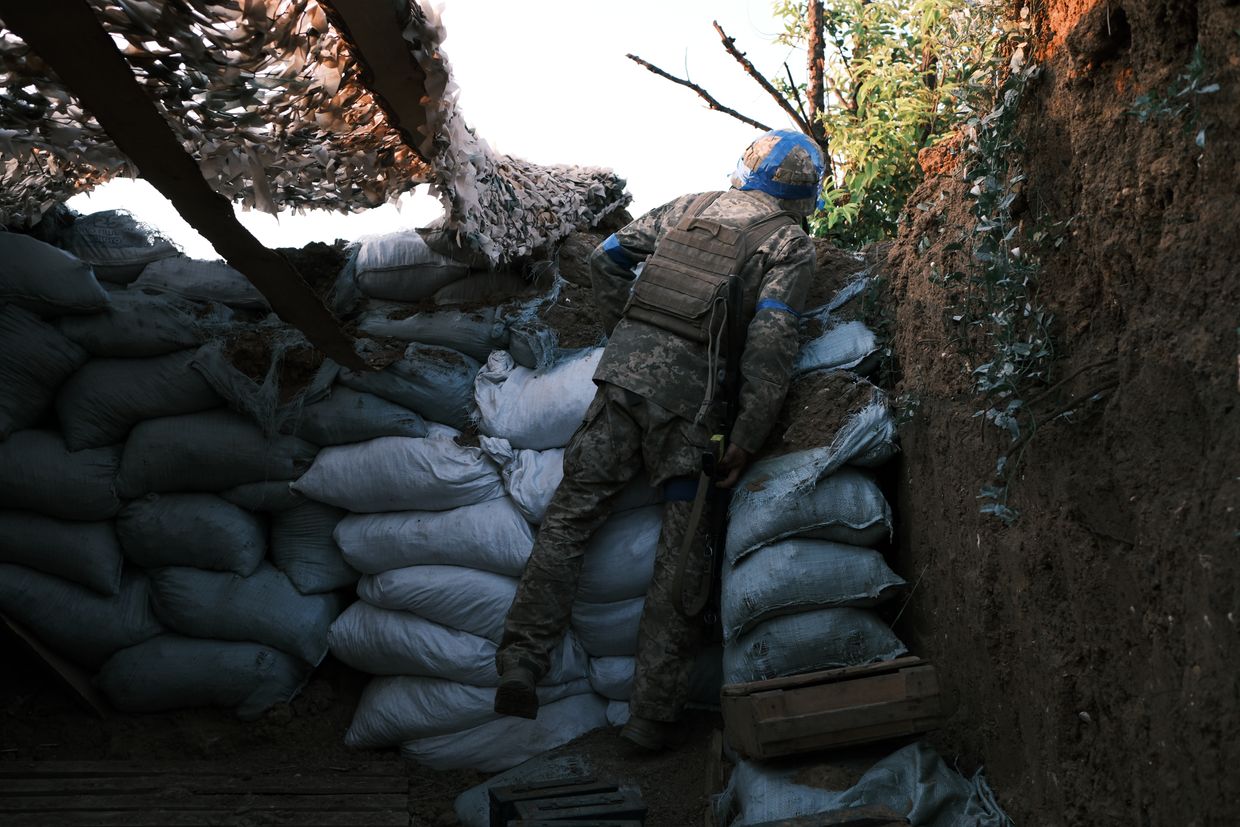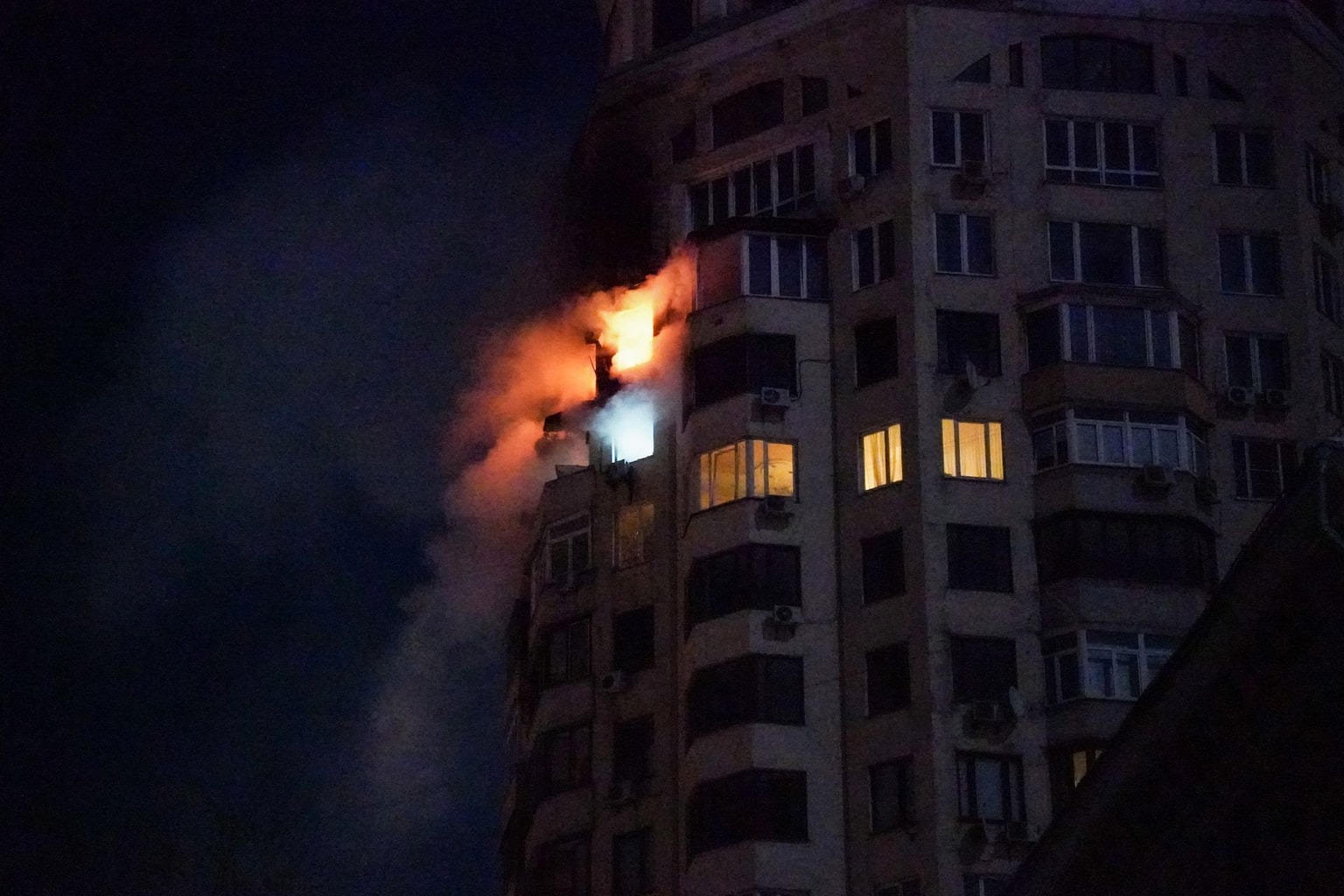Europe is struggling to show US it’s ready to provide security guarantees alone
Europe’s security guarantees — strong Ukrainian army, subsidized defense industry, “reassurance force” in no-contact zones, and a U.S. backstop to seal the deal

France’s President Emmanuel Macron (R) and President Volodymyr Zelensky arrive to chair the Coalition of the Willing Summit at the Élysée Palace in Paris, France, on Sept. 4, 2025. (Ludovic Marin/Pool/AFP via Getty Images)
BRUSSELS — As the so-called Coalition of the Willing gathers in Paris on Sept. 4, European leaders are expected to hear from Washington what role the U.S. is prepared to play in providing security guarantees for Kyiv.
For months, American officials have repeated that Europe must shoulder the bulk of the burden. Now, with a European blueprint nearly finalized at the technical level, officials in Paris say the plans are ready for use — provided Washington offers a backstop.
“We are willing and able, and we are ready,” an Elysee official told reporters on the eve of the talks. What remains, they added, is confirmation “that the plans indeed have the support of the U.S.”
President Volodymyr Zelensky has pushed for binding assurances from allies that they will force Russia to the negotiating table to end the war and prevent Moscow from launching another invasion soon after.
He landed in Paris on Sept. 3 to meet with the coalition leaders in person and emphasize that point.
However, with U.S. President Donald Trump being wary of extending a hand to Ukraine, and no pressure coming down on Russia to stop the war, European leaders struggle to find a role to play.
Europe on the front foot
Technical work since the coalition’s first meeting in February is now “almost completed,” according to the French officials, who spoke on condition of anonymity to be able to speak freely.
The plan focuses on consolidating Ukraine’s Armed Forces over the long term, ensuring Kyiv retains a position of strength, deploying an international “reassurance force” in no-contact zones, and propping up the country’s defense industry. But public details have been scarce as officials are adamant they will not be publicly discussed, not to give Russia any advantage.
“We have to prevent spreading our resources too thinly.”
Paris insists Europe has gathered enough contributions to move forward. But the package hinges on U.S. involvement, particularly in logistics, air and missile defense, and intelligence sharing.
Some European capitals have already said they will not sign up without clarity on these points.
The Paris gathering — co-chaired by France and the U.K. — will attempt to finalize Europe’s internal discussions before engaging more directly with Washington.
People familiar with the matter say a call with President Trump is expected right afterward, though it remains unclear in what format. U.S. Special Envoy Steve Witkoff will attend the meeting in Paris in person.

European diplomats say they want firmer U.S. commitments — not only to backstop guarantees but also to tighten sanctions on Moscow if no real progress from Russia’s side continues.
Standing alongside Zelensky in Paris on Wednesday, French President Emmanuel Macron underlined the message: Europe is ready to provide security guarantees; the U.S. must now do its part.
Zelensky also said he already “discussed this in detail, with the possible contributions of each country” of the so-called NB8 grouping, which includes Denmark, Norway, Estonia, Finland, Latvia, Lithuania, Sweden, and Iceland.
NATO Secretary General Mark Rutte struck a similar note in Brussels, saying he would “expect tomorrow, or soon after tomorrow, to have clarity on what collectively we can deliver,” he said.
Once Europe finalises its plans, he added, allies can engage “even more intensely” with Washington.
Not everyone onboard
Yet cracks are visible.
A European diplomat told the Kyiv Independent that early momentum in talks has faded, with Russia preparing fresh attacks on Ukrainian territory and a Putin-Zelensky summit nowhere in sight.
Sending a peacekeeping force after a truce, they warned, remains the key concern of most leaders in the groups, which remain split into three camps — those willing to deploy, those not and undecided countries.
Rutte sought to reassure NATO’s eastern members that resources devoted to Ukraine would not come at the expense of the alliance’s own defenses in front-line states.
“We have to prevent spreading our resources too thinly,” he said.

Not all European voices appear to be aligned, either.
European Commission President Ursula von der Leyen told the Financial Times last weekend that Europe was readying “pretty precise plans” for a force deployment.
But German Defense Minister Boris Pistorius swiftly dismissed such talk as premature, stressing that the EU’s executive has “no mandate or competency whatsoever when it comes to positioning troops.”
While von der Leyen was invited to the White House talks, some diplomats argued that European Council President Antonió Costa — who represents all EU member states — should have been at the table.
Costa will attend the Paris meeting in person.
Both leaders have embarked on reassurance tours: von der Leyen through front-line states bordering Russia, and Costa across all EU capitals ahead of September’s UN General Assembly.
Officials insist their efforts are complementary, not competitive.











